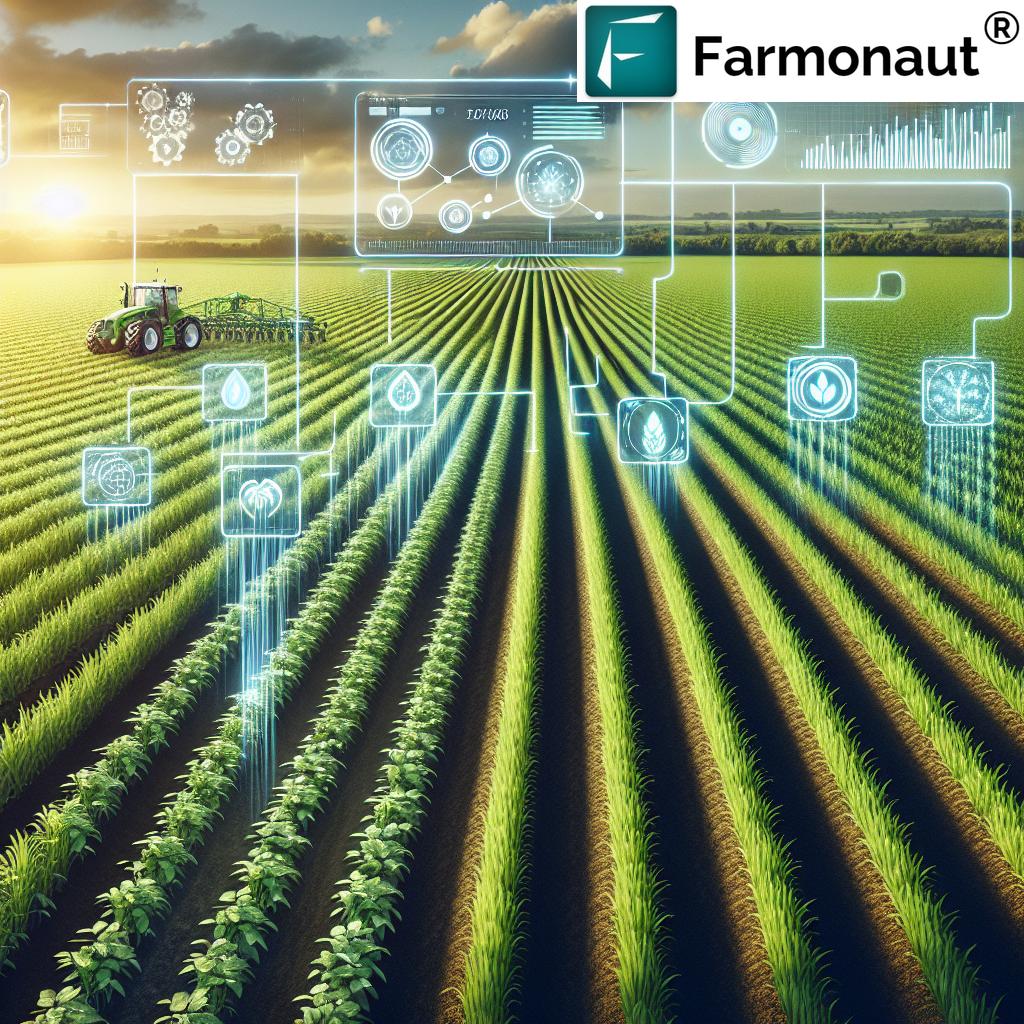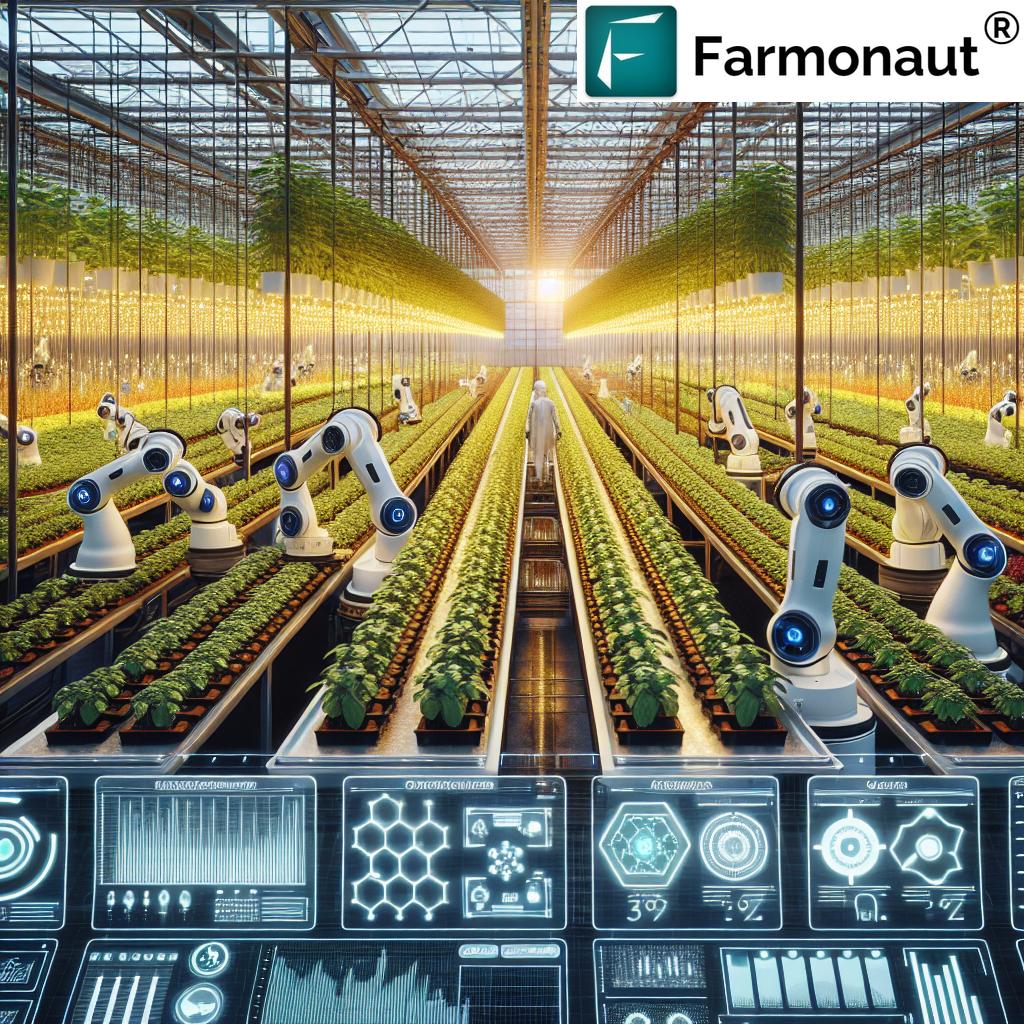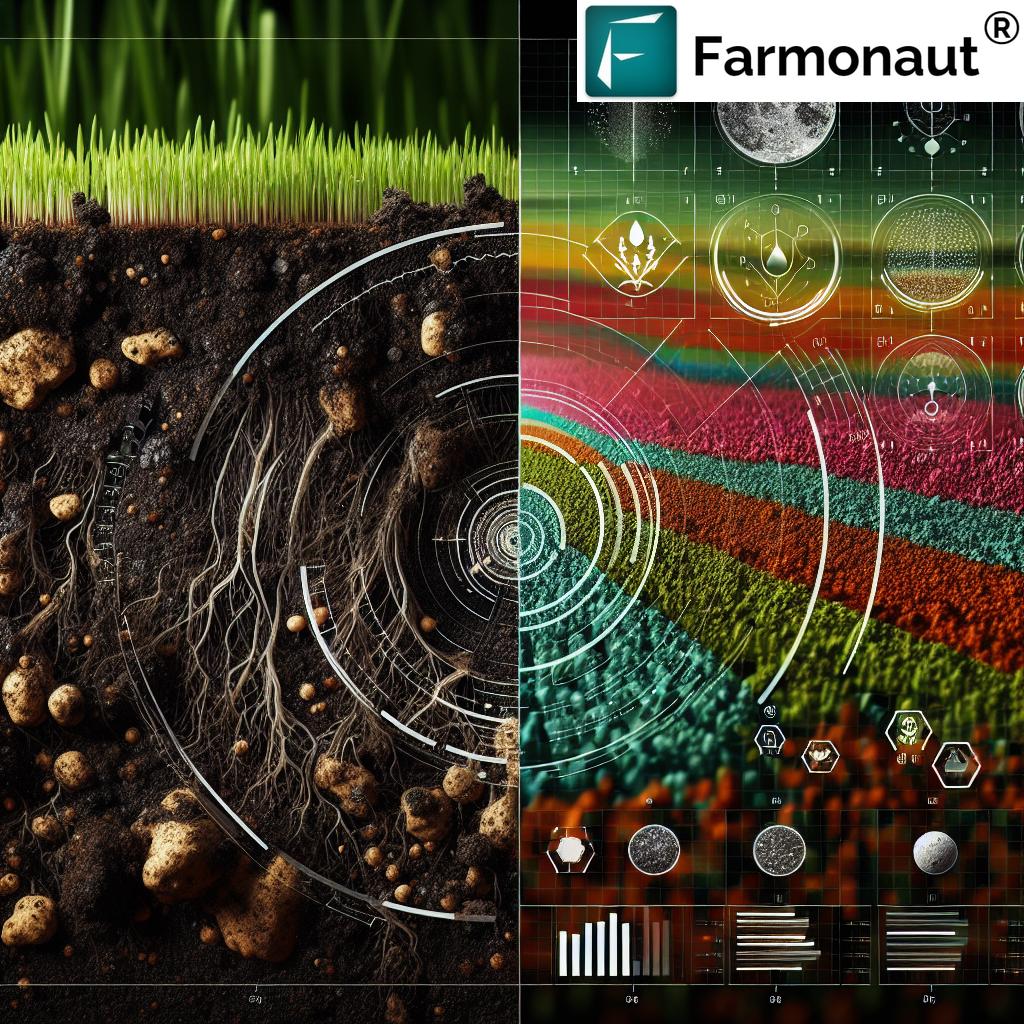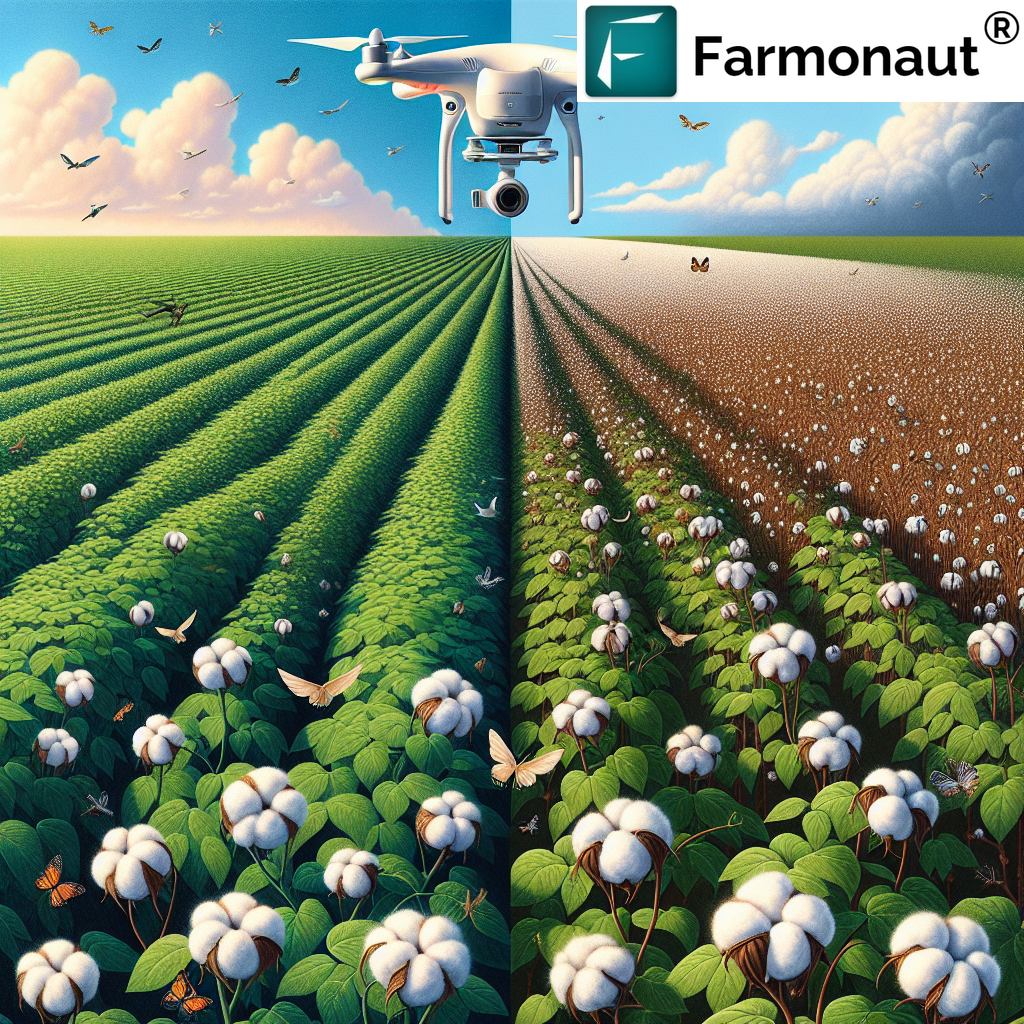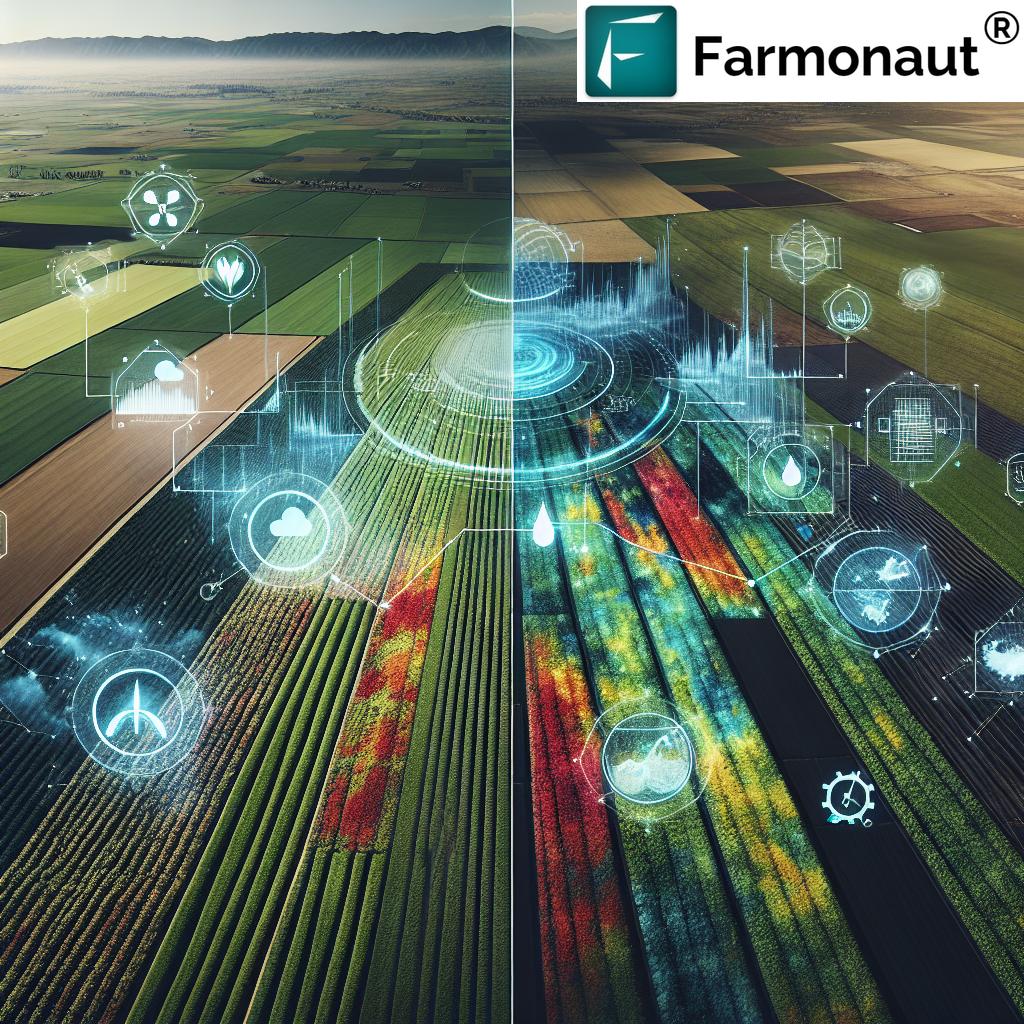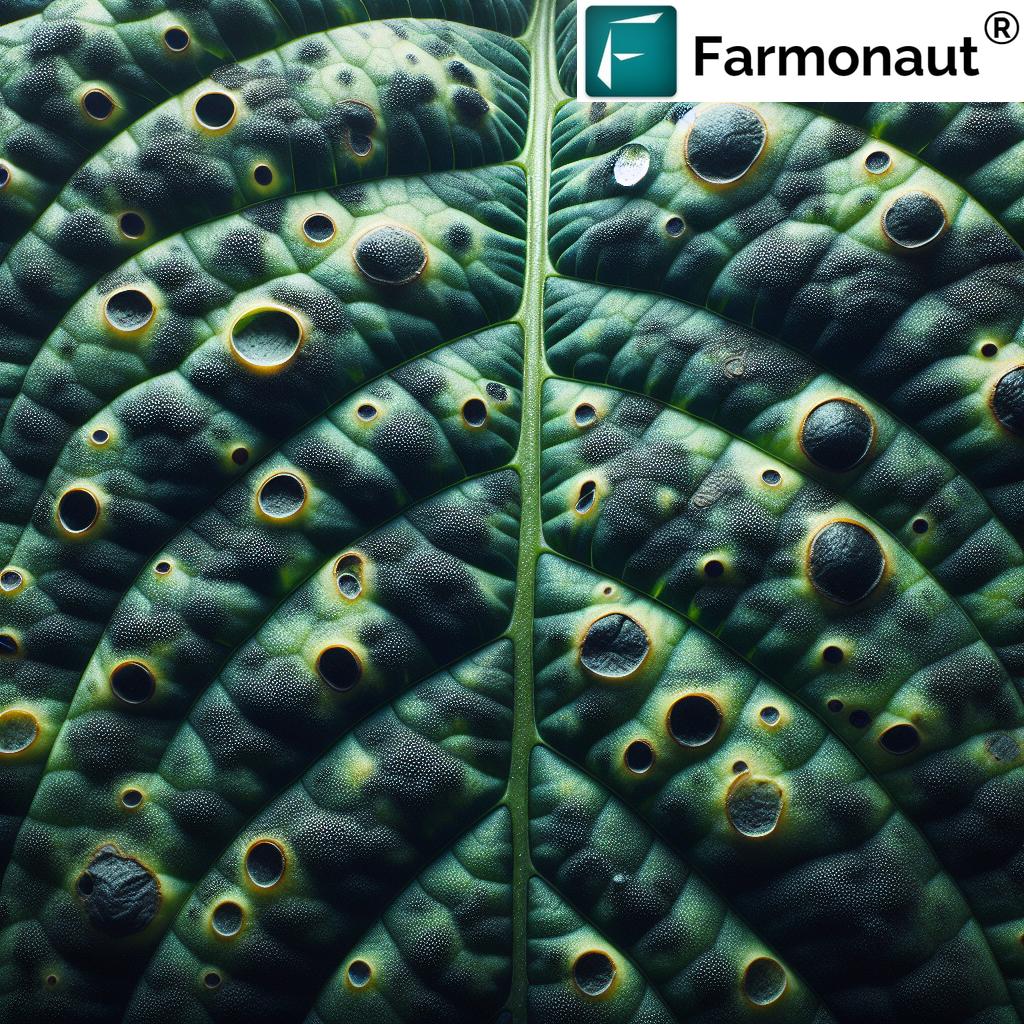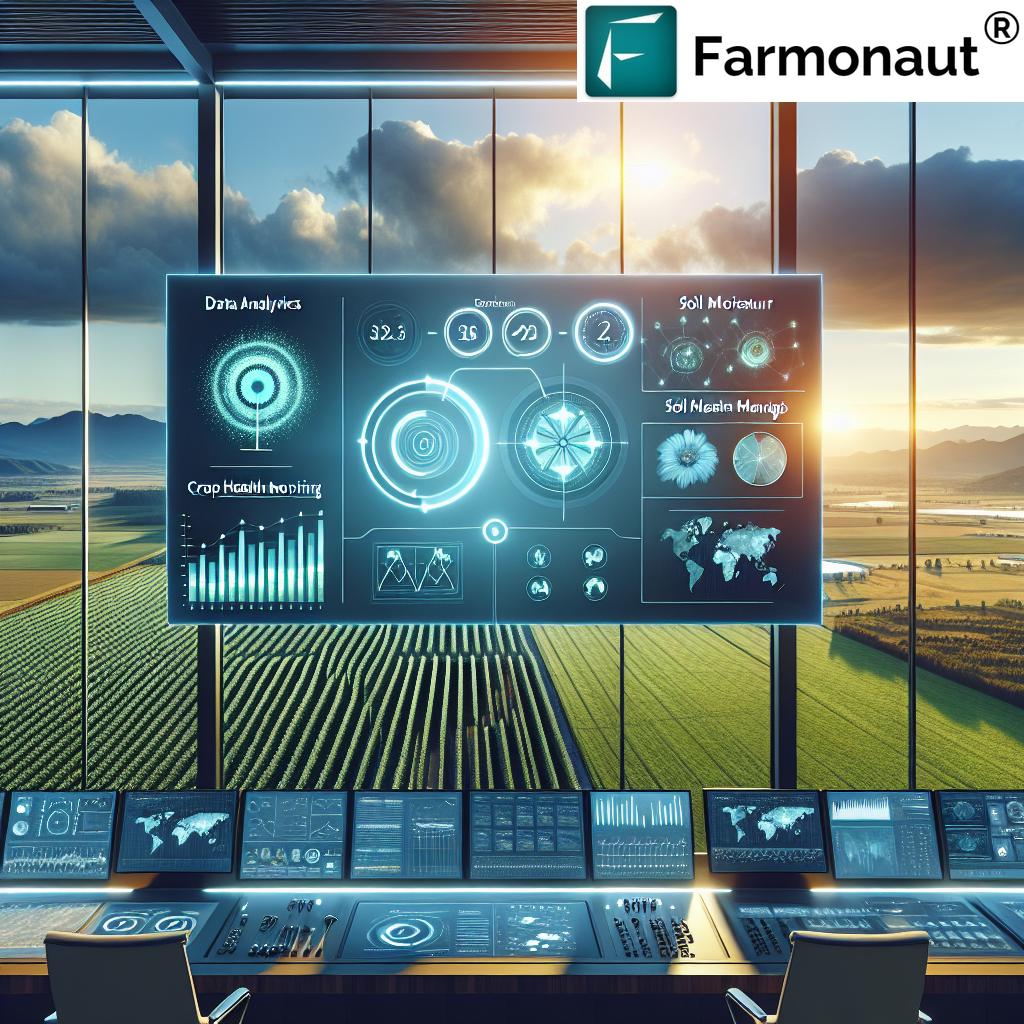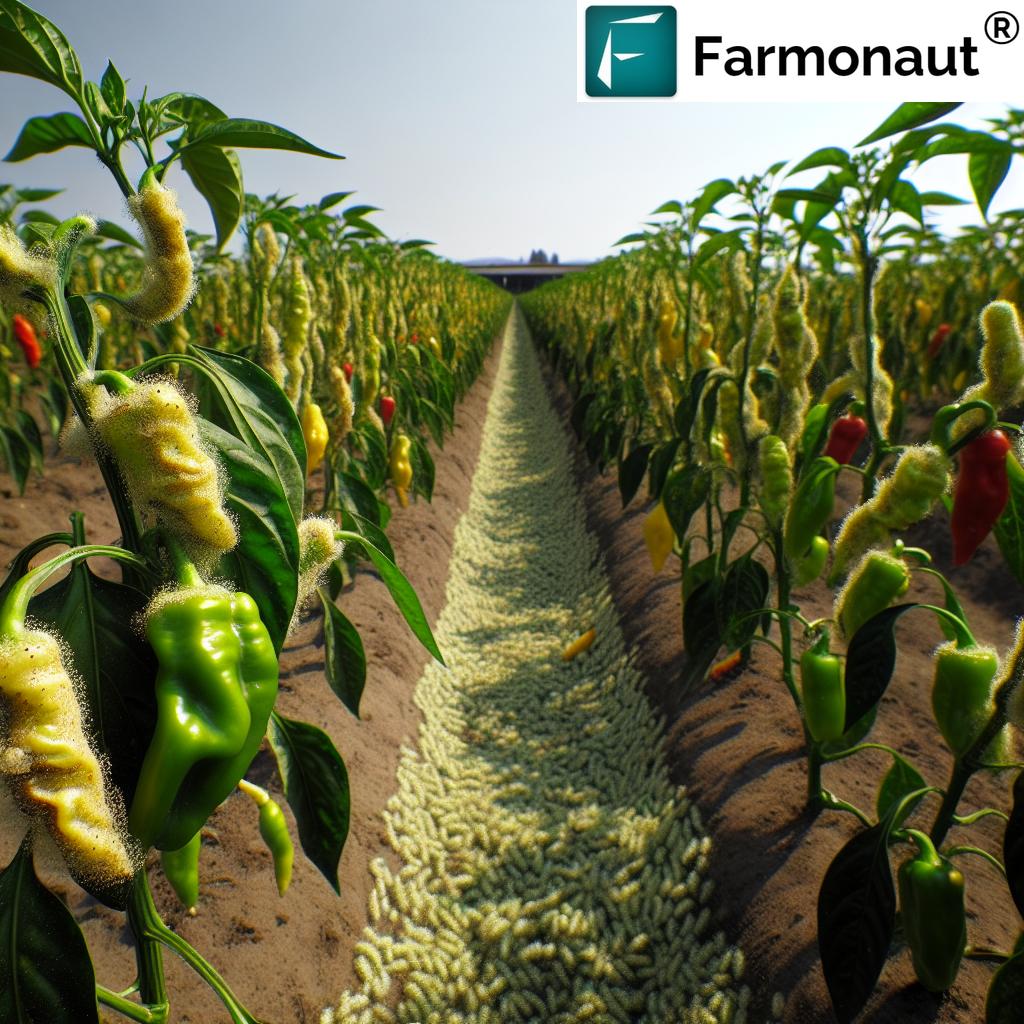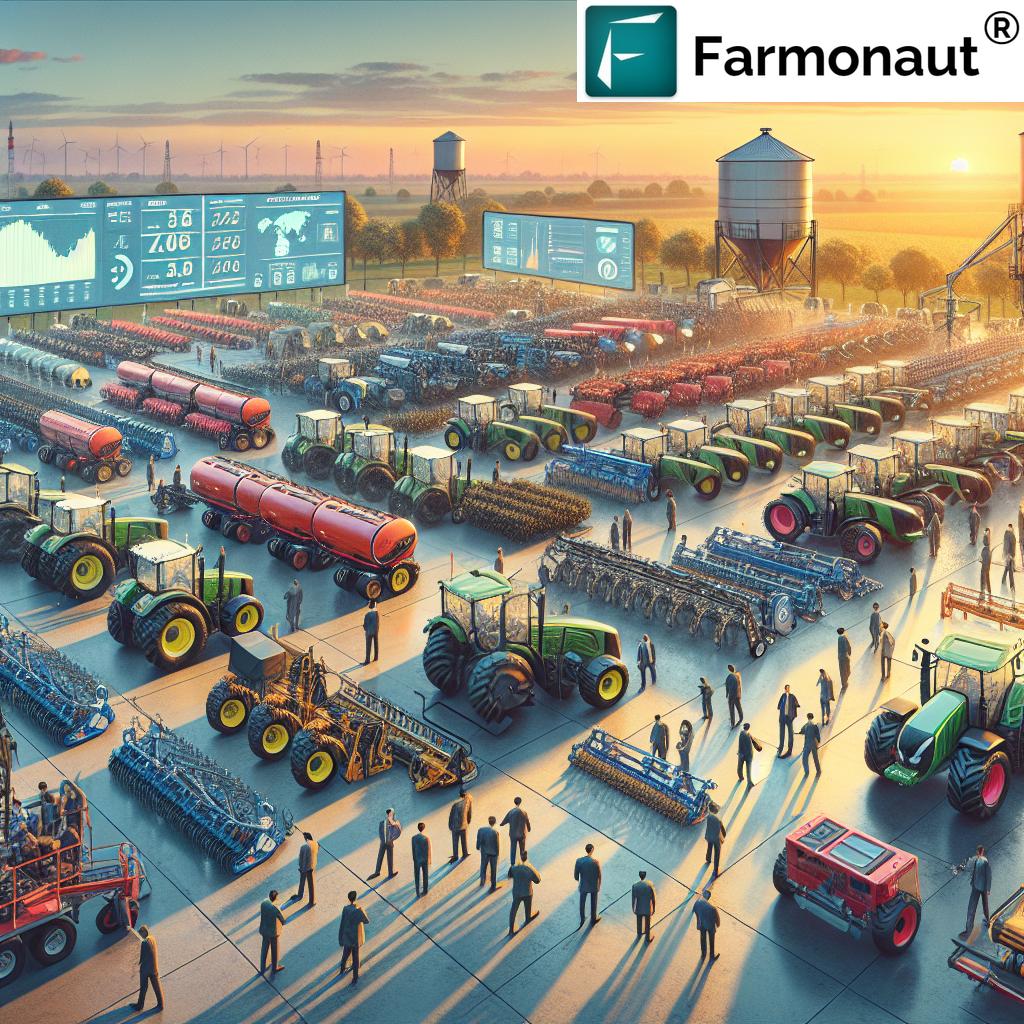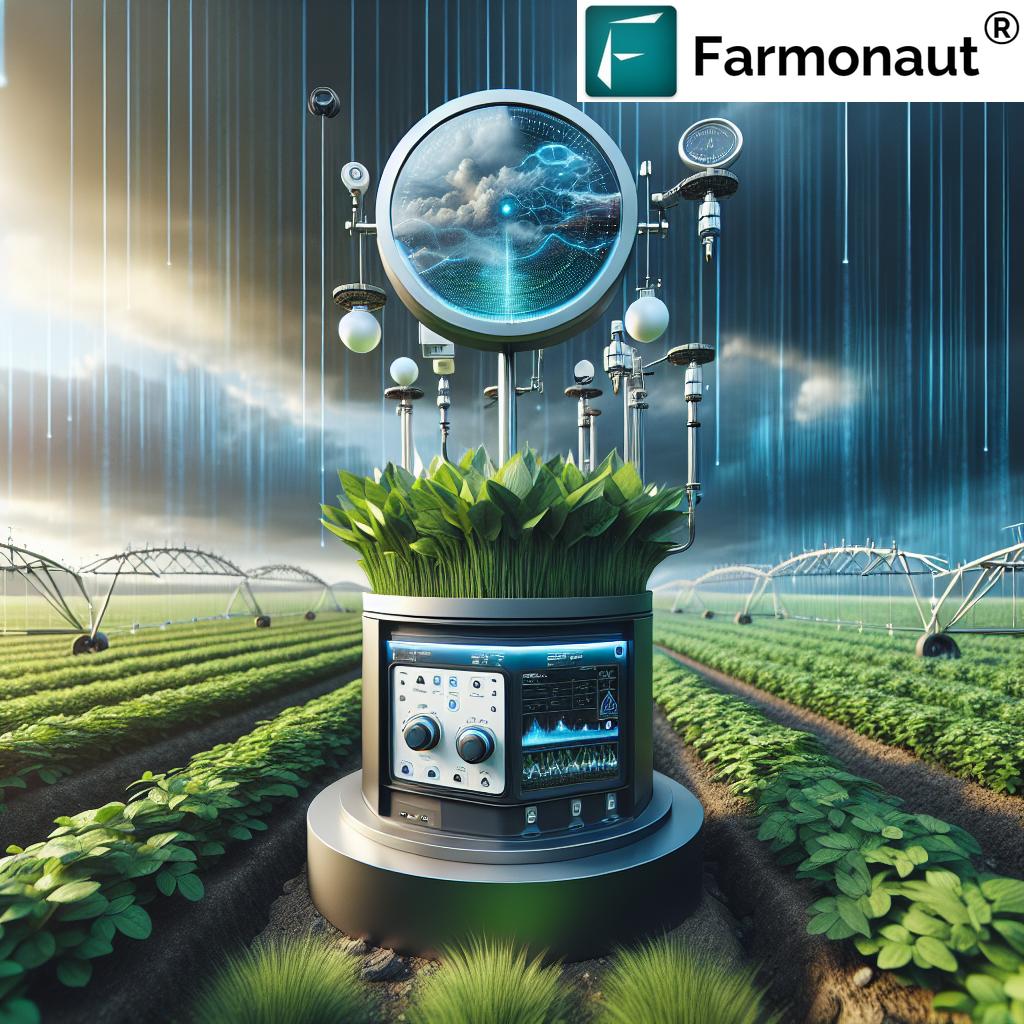Agri-Tech Secrets: 7 Shocking Ways to Boost Farming
Summary: Unveiling the Agri-Tech Revolution
Agri-tech encompasses a diverse range of agricultural technology innovations that are reshaping the global agricultural sector. At its core, agri-tech seeks to enhance the efficiency, productivity, and sustainability of agriculture, farming, and forestry by integrating advanced technologies such as artificial intelligence (AI), the Internet of Things (IoT), robotics, and biotechnology.
As we collectively confront the challenges of food security, resource scarcity, and climate change, these innovations offer vital solutions for healthier crops, improved soil health, and reduced environmental impact. In this comprehensive guide, we’ll reveal seven shocking and game-changing agri-tech secrets that are powering the future of agriculture—enabling farmers to thrive, minimize waste, and adapt to an ever-changing world.
“AI-driven precision agriculture can increase crop yields by up to 30% compared to traditional farming methods.”
How Farmonaut’s Satellite Technology is Revolutionizing Land Use in Agriculture
1. Precision Agriculture: The Data-Driven Farming Revolution
Precision agriculture is at the forefront of agricultural technology innovations, unlocking dramatic efficiencies for today’s farmers. By leveraging AI, IoT sensors, GPS, and advanced data analytics, this approach enables farmers to:
- Monitor field variability and crop conditions in real-time
- Apply water, fertilizers, and pesticides with pinpoint efficiency
- Reduce waste and minimize environmental impact
- Boost yields and optimize resource usage
Technologies such as Farmonaut’s satellite-based crop health monitoring use multispectral imagery to assess crop health, identify pest infestations, and evaluate soil conditions. Services like Jeevn AI Advisory System deliver real-time, tailored recommendations—helping farmers make informed decisions on irrigation, nutrient management, and disease prevention. Learn how Farmonaut’s crop plantation and forest advisory tools give actionable insights for maximizing productivity while protecting natural resources.
Farmonaut’s Tech Advancements in Q3
Key Benefits of Precision Agriculture
- Enhanced Productivity: By accurately detecting plant stress or nutrient deficiencies, we can apply resources only where needed, maximizing yields.
- Reduced Costs: Variable rate technology ensures we use fewer fertilizers, pesticides, and water—directly reducing our expenses.
- Improved Sustainability: With data-driven interventions, we significantly minimize the environmental footprint of agriculture.
Example: A farmer, using satellite insights, identifies a drought-prone segment of their field and applies targeted irrigation—saving water and enhancing plant resilience without overusing resources.
Explore: Farmonaut’s large-scale farm management platform empowers us to monitor vast fields with ease, boosting efficiency and data-based action.
2. Agricultural Automation and Robotics: Powering Productivity
Automation, including autonomous machinery and robots, is making agricultural operations more efficient while reducing labor costs and human error. Companies are now utilizing robotics for tasks such as:
- Planting, harvesting, and weeding—all optimized for speed and consistency
- Automated mechanical weeders equipped with AI and computer vision to distinguish between crops and weeds
- Selective removal of weeds without chemical herbicides, reducing environmental impact
The advanced innovations in this space have demonstrated the capacity to increase productivity and create safer, more resilient workplaces. Autonomous tractors, drone sprayers, and mobile harvesters are not just future concepts—they are rapidly becoming essentials in the modern farmer’s toolkit.
For organizations and cooperatives, Farmonaut’s fleet management solutions optimize machinery utilization, ensuring timely operations while reducing operational costs and downtime.
The Role of Artificial Intelligence in Agriculture – Farmonaut | Agritecture | Joyce Hunter
Advantages of Automation and Robotics in Farming
- Consistency & Accuracy: Robots perform repetitive tasks without fatigue, ensuring uniformity in planting and harvesting.
- Labor Savings: Automated systems address labor shortages and permit us to allocate workers to more skilled operations.
- Safety Improvements: Autonomous machinery can operate in hazardous or challenging environments, reducing risk.
3. Smart Greenhouses: Controlled Environments for Optimal Yield
Imagine being able to precisely control temperature, humidity, light, and CO₂ levels to maintain the perfect environment for plant growth—regardless of the outside climate. Smart greenhouses employ IoT devices, AI systems, and automation to create optimal, controlled environments that:
- Boost productivity by minimizing plant stress and maximizing growth potential
- Enable year-round cultivation of high-value crops
- Use data from sensors to monitor and adjust factors automatically, reducing resource usage
- Reduce water consumption and enhance energy efficiency
Modern smart greenhouses, powered by platforms like Farmonaut, allow real-time monitoring and interventions on mobile or desktop. Data collected through IoT sensors feeds directly into analytics platforms, delivering timely forecasts and proactive alerts.
The result? Increased resilience to climate change, improved resource efficiency, and robust food security. If you are interested in maximizing returns from protected cultivation, Farmonaut’s carbon footprinting solutions can also help you monitor emissions and achieve compliance with environmental standards.
4. Biotechnology in Crop Improvement: Breeding Resilient Futures
Biotechnology is transforming how we select, breed, and protect crops—delivering improvements once considered impossible. Through tools like genetic engineering and CRISPR gene editing, we can:
- Enable crops to resist pests, disease, and environmental extremes
- Develop plants with improved nutritional content and higher yields
- Reduce reliance on chemical pesticides and fertilizers
- Accelerate plant breeding cycles for rapid response to new agricultural threats
This shift not only secures the safety and abundance of our food supply, but also aligns with sustainability goals by reducing agricultural impact on ecosystems. As consumers demand greater transparency, product traceability platforms (like Farmonaut’s blockchain-enabled solution) ensure every stage of biotechnology-enhanced products is tracked and trusted.
Farmonaut | Making Farming Better With Satellite Data
5. Agroforestry: Integrated Ecosystems for Sustainable Farming
Agroforestry integrates forestry and agriculture on the same land—creating resilient, productive, and ecologically harmonious systems. This approach enables us to:
- Enhance biodiversity—trees, crops, and livestock share habitats
- Improve soil health via deeper root systems and organic matter
- Sequester carbon, directly contributing to climate change mitigation
- Diversify farm income with timber, fruit, and other forest products
- Reduce pressure on primary forests through sustainable wood and non-timber production
With smart sensors and real-time monitoring from platforms like Farmonaut, agroforestry management becomes data-driven, empowering us to optimize the benefits for both harvests and the environment.
“Over 60% of farmers using agri-tech innovations report significant reductions in water and fertilizer usage.”
6. Supply Chain Optimization in Agriculture: Smarter, Leaner Logistics
As the global demand for food and agricultural products grows, efficiency and reliability in the supply chain are more vital than ever. Modern agri-tech delivers supply chain optimization solutions through:
- IoT sensors that monitor product conditions from field to fork
- Blockchain platforms that ensure transparency and traceability, reassuring consumers about product origin and quality
- Automated logistics systems that reduce waste and speed up distribution
- Digital management tools (like Farmonaut API) that support seamless integration and real-time analytics for better decision making
The ultimate benefit? We cut costs, cut waste, and boost confidence from producers to end-users. Plus, with traceability solutions, the risk of fraud is minimized—protecting both brand reputation and consumer safety.
7. Sustainability, Climate Change and Agriculture: Innovations for Our Planet
Agricultural sustainability isn’t just a buzzword—it’s a necessity. New agri-tech solutions are designed for reducing environmental impact and helping us adapt to climate change. These include:
- AI-based advisory for precise planning and resource allocation
- Smart sensors and analytics that minimize water and chemical usage
- Satellite tracking of carbon footprints—essential for meeting modern compliance standards (Farmonaut’s carbon footprinting)
- Resource management platforms for optimal use of machinery and inputs
By enabling accurate monitoring, rapid response to climate threats, and more responsible stewardship of soil health, these technologies are at the heart of agriculture sustainability solutions.
For farmers seeking to both reduce environmental impact and improve eligibility for green funding or carbon credits, leveraging satellite-supported analytics and carbon verification (see Farmonaut’s carbon footprinting) has never been more accessible.
Comparative Impact Table: Agri-Tech Innovations
| Agri-Tech Innovation | Estimated Yield Improvement (%) | Estimated Cost Reduction (%) | Sustainability Impact |
|---|---|---|---|
| AI-based Crop Monitoring | 20–30% | 15–25% | High |
| IoT Soil Sensors | 12–18% | 10–20% | High |
| Precision Agriculture Tools | 18–24% | 12–18% | High |
| Automation & Robotics | 10–15% | 20–30% | Medium |
| Smart Greenhouse Systems | 15–25% | 10–15% | High |
| Biotechnology (Gene Editing) | 25–35% | 8–13% | Medium |
| Supply Chain Optimization Platforms | 5–10% | 18–28% | Medium |
Farmonaut’s Advanced Solutions: Pioneering the Next Agri-Tech Wave
As the pace of agricultural technology innovation accelerates, easy and affordable access becomes crucial. Farmonaut stands out as a pioneering agricultural technology company delivering a comprehensive suite of tools that make precision agriculture accessible for farmers, cooperatives, agribusinesses, and government agencies worldwide. Our mission is clear: empower farmers, improve productivity, and encourage sustainable agriculture globally.
How Farmonaut Empowers Farming Success
- Satellite-Based Crop Health Monitoring: We provide real-time crop health insights, vegetation NDVI analysis, and soil moisture detection, supporting smarter decisions on irrigation, fertilization, and pest management.
- AI-Driven Farm Advisory: Our Jeevn AI delivers weather forecasts and crop-specific guidance for efficiency and risk reduction.
- Blockchain Traceability Solutions: Through blockchain-based traceability, all product movements from farm to table are transparent and fraud-resistant.
- Fleet and Resource Management: Farmonaut’s platform assists with tracking agricultural machinery and optimizing logistics, reducing operational costs and increasing supply chain efficiency.
- Carbon Footprinting and Sustainability Analytics: We help monitor carbon emissions for compliance and eco-friendly certification.
- API Access: Access all insights via our public API and developer documentation.
- Mobile & Web Apps: Farmonaut is available on Android, iOS, and web platforms for universal access.
Our approach is subscription-based, ensuring affordability for smallholders up to large plantations. Learn more about our packages below.
Farmonaut Subscriptions
Agri-Tech Startups: Catalysts of Transformation
Across the globe, agri-tech startups are deploying innovations that are transforming the agricultural landscape. These pioneers are reducing entry barriers for farmers, providing cloud-based analytics, and introducing modular hardware for scalable integration:
- Startups leverage AI analytics and hyperspectral imaging for yield prediction, pest management, and process automation.
- Digital soil health analysis (like soil DNA sequencing) helps us identify pathogens and nutrient gaps for targeted intervention.
- Many focus on precision irrigation management through real-time in-soil sensors, reducing water waste and improving crop health.
- Cloud-based traceability and supply chain platforms enable secure and transparent product flows—meeting the increased demand for ethically sourced food.
Challenges and The Future of Agricultural Technology
Despite remarkable advancements, agri-tech faces several challenges:
- High Initial Costs: Upfront technology investment can be prohibitive for many, especially in developing regions.
- Data Privacy Concerns: Widespread use of IoT sensors and analytics requires robust cybersecurity.
- Skill Shortages: Operating and maintaining advanced technologies demands a skilled workforce.
- Equitable Access: Ensuring innovations reach smallholder farmers is vital for inclusive growth.
The future of agricultural technology rests on continued innovation and collaboration, as well as policies that nurture sustainability and equitable growth.
- Expect even greater adoption of AI in agriculture and real-time satellite analytics from providers such as Farmonaut.
- Regenerative practices, circular economy principles, and energy-efficient greenhouses will become standard as climate change intensifies.
To stay at the forefront, consider implementing platforms that offer real-time monitoring, traceability, and sustainable farm management—with the power to scale as agricultural needs evolve.
FAQ: Agri-Tech Innovations Demystified
What is agri-tech and why is it important?
Agri-tech refers to a broad range of agricultural technology innovations meant to improve farming efficiency, productivity, and sustainability. It allows us to make better decisions, reduce waste, and respond to environmental challenges.
How does precision agriculture benefit farmers?
Precision agriculture gives farmers real-time data on crop, soil, and environmental conditions to apply inputs efficiently, maximize yields, and minimize environmental impact.
Can smallholder farmers access advanced agri-tech platforms?
Yes, platforms like Farmonaut offer affordable, subscription-based access to satellite data and smart advisory systems even for small-scale farmers.
What role does AI play in agriculture?
AI in agriculture powers everything from plant disease prediction and yield optimization to weather forecasting and automated machinery—making farming more productive and less risky.
How is the environmental impact of farming monitored?
Leveraging satellite imagery, IoT sensors, and carbon footprinting analytics, farms can track emissions and resource use, adjusting practices for sustainability and compliance.
Resources & Useful Links
-
Farmonaut Android App:
Get it on Google Play -
Farmonaut iOS App:
Available on the App Store -
Farmonaut Web App:
Access Web Portal -
Farmonaut API Access:
Explore the API
| API Developer Docs - Traceability Solutions: Blockchain-enabled farm-to-table product traceability
-
Crop Loan & Insurance Verification:
Satellite-verified loan and insurance platform -
Fleet Management:
Optimize your farm machinery and fleet resources -
Large Scale Farm Management:
Manage large plantations with Farmonaut Agro Admin -
Carbon Footprinting:
Track emissions and improve sustainability -
Crop Plantation & Forest Advisory:
Get tailored advice for your land
With these seven agri-tech secrets, we are better equipped than ever to tackle global food security challenges, safeguard our environment, and usher in a new era of resilient, data-driven farming. Whether you’re a farmer, agribusiness, or policy maker, the future belongs to those who harness advanced technology and data-driven insights for a healthier, more sustainable, and more productive agricultural world.


